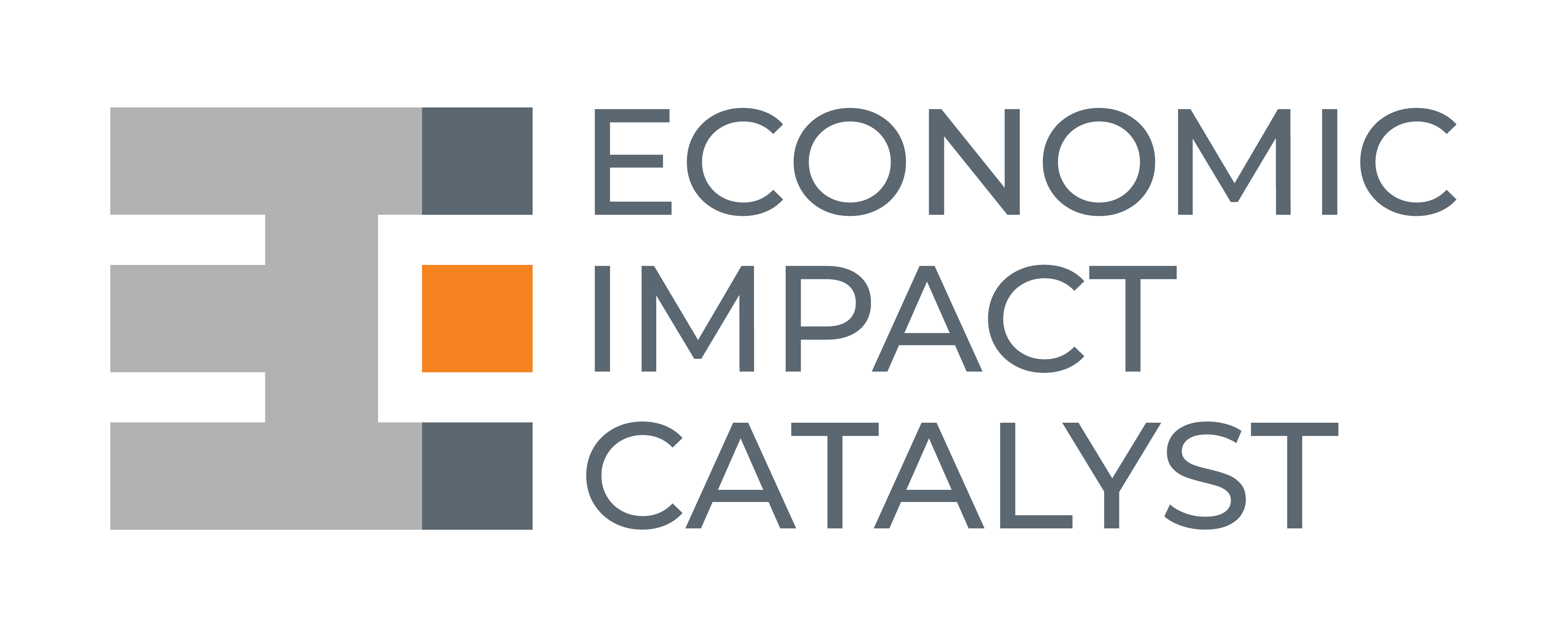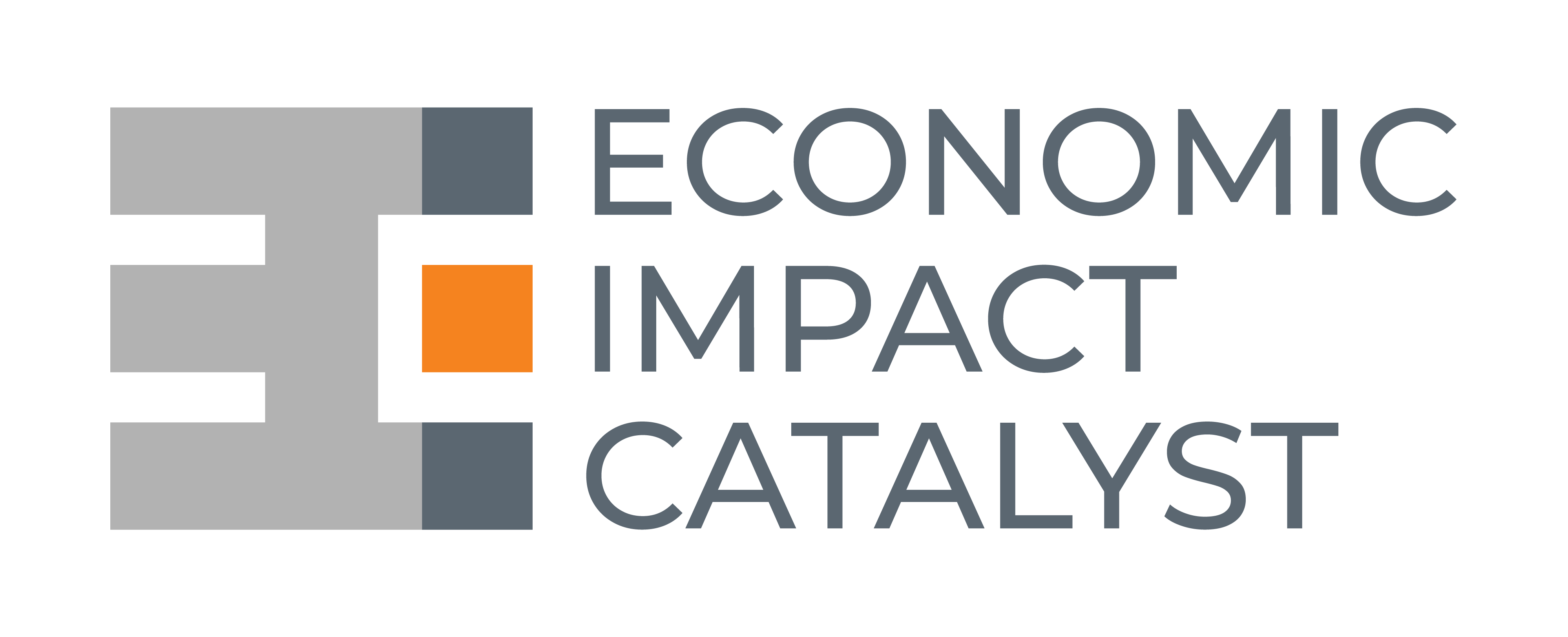As entrepreneurship continues to gain traction as a major driver of economic growth and development, it has become increasingly important for entrepreneurship support organizations (ESOs) and economic development organizations (EDOs) to understand the challenges facing entrepreneurs. While entrepreneurship offers many opportunities, it also presents unique challenges that can be difficult to overcome without proper support. To facilitate a cycle of economic prosperity, EDOs should work closely with ESOs to create an ecosystem that supports entrepreneurship. Each organization should be aware of the challenges facing entrepreneurs and be prepared to strategize and offer solutions, and they should anticipate shifts in the landscape moving forward.
Entrepreneurial Challenges

Although new ventures can be exciting and promising to the local community, entrepreneurship can also bring with it many challenges. With the right support and resources, entrepreneurs can overcome them and succeed in building thriving businesses that drive economic growth, and therefore be a success as they participate in entrepreneurship-led economic development (ELED). Some of the most difficult barriers to entrepreneurship include limited access to capital and resources, market uncertainty, and competition. By understanding the challenges facing entrepreneurs and working to address them, ESOs and EDOs can play a crucial role in creating a more inclusive and equitable entrepreneurial ecosystem that benefits everyone.
1. Limited access to capital and resources
One of the biggest challenges facing entrepreneurs is access to capital. Starting a business requires significant financial resources, and many startup entrepreneurs struggle to secure the funding they need in the beginning to get their ventures off the ground. This is particularly true for those in underserved communities, who often lack access to traditional financing options like bank loans and venture capital.
To address this challenge, ESOs and EDOs can provide access to alternative funding sources, such as grants, microloans, crowdfunding, and community development financial institutions (CDFIs). Additionally, they can work to create more inclusive and equitable financing ecosystems by partnering with banks, investors, and other stakeholders to promote diversity and inclusion in funding decisions.
As part of their mentorship or training programs, ESOs can also help entrepreneurs prepare for funding opportunities by focusing on the development of strong business plans, financial models, and pitch decks. This can help entrepreneurs communicate their value proposition effectively and increase their chances of securing funding.
Another significant challenge for entrepreneurs is limited resources. Starting a business requires a wide range of skills, including marketing, sales, finance, and operations. Many entrepreneurs struggle to find the time and resources to master all of these areas, which can hinder their ability to grow and scale their ventures.
Part of creating a supportive ecosystem for entrepreneurship is ensuring these resources are easily available to entrepreneurs. ESOs and EDOs can organize training and mentorship programs that help entrepreneurs build the skills they need to succeed. They can also facilitate access to resources like shared workspaces, technology platforms, and other tools that entrepreneurs will need as they grow and scale their businesses.
2. Market uncertainty
Market uncertainty is a significant challenge for entrepreneurs, particularly in volatile industries like technology and finance. Entrepreneurs must navigate shifting market conditions, changing customer preferences, and emerging trends, all of which can have a significant impact on the trajectory of their businesses.
ESOs and EDOs can provide market intelligence and analysis that helps entrepreneurs stay up-to-date on market trends and developments. They can also facilitate access to networking events and mentorship programs that connect entrepreneurs with industry experts and thought leaders who can provide guidance and insights. Additionally, they can assist entrepreneurs in diversifying their revenue streams and business models to reduce their dependence on a single market or customer segment. This can help mitigate the impact of market uncertainty and enable entrepreneurs to adapt more quickly to changing market conditions.
3. Competition
Competition is a natural part of entrepreneurship, but it can be a significant challenge for new and emerging ventures. Established competitors often have significant advantages in terms of brand recognition, market share, and resources, making it difficult for new entrants to gain traction. Entrepreneurs face competition from not only established players in their industry, but also new entrants seeking to disrupt the market.
By providing access to services like market research and gap analysis, ESOs and EDOs can help entrepreneurs identify gaps and opportunities in the market, enabling them to differentiate their products and services from those of their competitors. They can also enlist the assistance of mentors and host networking programs that help entrepreneurs build relationships with industry leaders and potential customers, which can aid entrepreneurs in building the skills they need to compete effectively and understand consumer needs.
The Future of Entrepreneurship

As the world continues to evolve at a rapid pace, so too does the entrepreneurial landscape. Innovative technologies, evolving consumer behavior, and global economic trends are some of the factors that will continue to shape the future of entrepreneurship-led economic development. ESOs and EDOs should be proactive in providing support and guidance to entrepreneurs in areas like new technologies, shifting consumer behavior, and global economic trends moving forward.
Emergence of new technologies
New technologies are constantly emerging, and they have the potential to revolutionize the entrepreneurial landscape. From artificial intelligence to blockchain to 5G, these new technologies offer new jobs and exciting opportunities for entrepreneurs. However, new innovations in technology also present challenges. For example, entrepreneurs working with new technologies may face regulatory hurdles, or they may struggle to find the talent they need to bring their ideas to life.
ESOs and EDOs can help to support entrepreneurs who are working with new technologies by providing access to specialized expertise and resources. This might include incubators or accelerators focused on specific technologies, or partnerships with universities and research institutions. ESOs and EDOs will need to be agile and adaptable in order to keep up with the rapidly changing technological landscape. This might mean investing in new training programs or partnering with other organizations to pool resources.
Overall, the emergence of new technologies represents both a challenge and an opportunity for entrepreneurs and for the organizations that support them. By staying up-to-date with the latest technological developments and being proactive in supporting entrepreneurs who are working with these new technologies, ESOs and EDOs can help to create a more vibrant and innovative entrepreneurial ecosystem.
Shifting consumer behavior
Consumer behavior is constantly evolving, driven by changing demographics, cultural shifts, and the emergence of new technologies. Entrepreneurs who can stay ahead of these changes will be better positioned for success in the future. One key trend that is likely to shape consumer behavior in the coming years is the increasing importance of social and environmental responsibility. Consumers are becoming more conscious of the impact their purchasing decisions have on the world around them, and they are looking for businesses that share their values. For daily business activity, this may look like using sustainable materials, implementing fair labor practices, or donating a portion of profits to social causes.
Another trend that is likely to shape consumer behavior is the increasing importance of digital channels. As more consumers shop online, entrepreneurs will need to develop strong digital marketing and e-commerce strategies in order to reach their target audiences. ESOs and EDOs can help entrepreneurs to develop these strategies by providing training and resources in areas such as social media marketing, search engine optimization, and online advertising. Overall, ESOs and EDOs can help entrepreneurs to understand and adapt to changing consumer behavior by providing access to and explaining market research and predictions, as well as by hosting events and workshops focused on consumer trends and shifting behaviors.
Fluctuations in consumer behavior are a constant challenge for entrepreneurs. However, by staying up-to-date with the latest trends and by developing strategies to adapt to changing consumer preferences, entrepreneurs can be proactive in anticipating what the future entrepreneurial landscape may look like.
Global economic trends
Entrepreneurs cannot operate in isolation from the wider economic landscape, and global economic trends can have a significant impact on entrepreneurial opportunities and challenges. As mentioned, the emergence of new technologies will be a key factor for entrepreneurs to be cognizant of. Digital technologies are transforming industries across the globe, and entrepreneurs who are able to harness the power of these technologies will be keeping up with global economic trends and demands. This might include developing new digital products or services or using digital technologies to optimize existing business processes.
However, global economic trends also present challenges for entrepreneurs. For example, global economic instability can create uncertainty and volatility in markets, making it difficult for entrepreneurs to plan for the future. In addition, global economic trends can create competition from businesses in other countries, and can create regulatory hurdles for entrepreneurs looking to expand into new markets.
ESOs and EDOs can help entrepreneurs to stay informed about global economic trends, and to adapt their strategies accordingly. By providing access to resources and expertise in areas such as international trade, global finance, and cross-cultural communication, ESOs and EDOs can assist entrepreneurs navigate these challenges as their businesses expand and grow. Entrepreneurs should focus on staying informed about global economic trends and developing strategies to adapt to changing conditions as they continue in their journey.
Conclusion
Entrepreneurship and economic development are essential components of a thriving economy. By facilitating access to capital and resources and providing mentorship and training on areas crucial to entrepreneurial success, ESOs and EDOs can help entrepreneurs succeed and contribute to the economic growth and development of local communities. And by staying on top of trends and being proactive in supporting innovative new businesses, these organizations can ensure that the cycle of economic growth and development continues far into the future.
About EIC
At Economic Impact Catalyst, our mission is to activate a world where there is equitable and inclusive access to entrepreneurship. We believe that entrepreneurship is the key to equitable and inclusive economic development. Our team’s main focus every day is to make it easier for founders to launch businesses in order to create wealth for themselves, for their teams, and for their communities. To learn more about our technology and market research solutions, built exclusively to catalyze entrepreneurship-led economic development efforts, book a call with us today.


